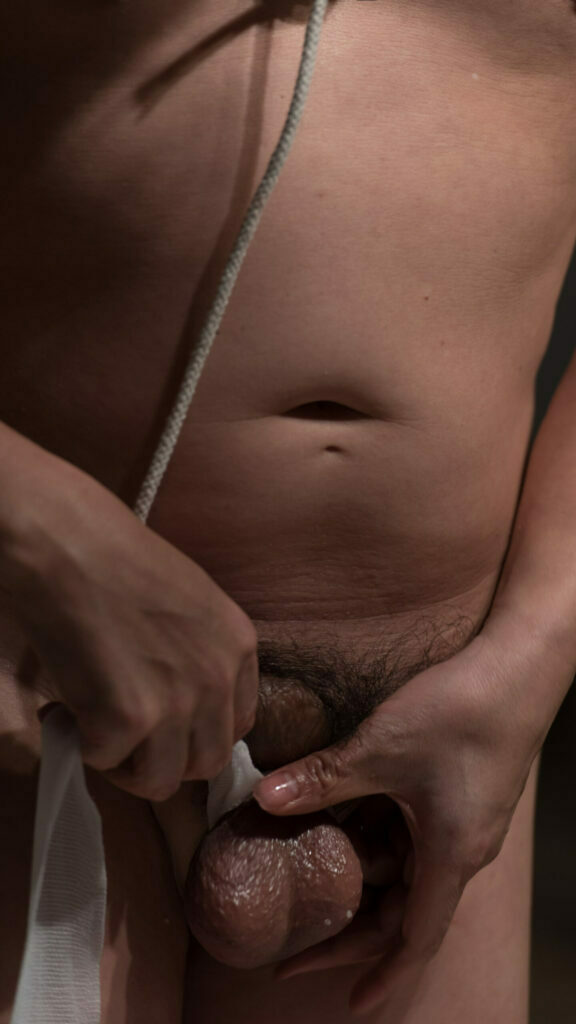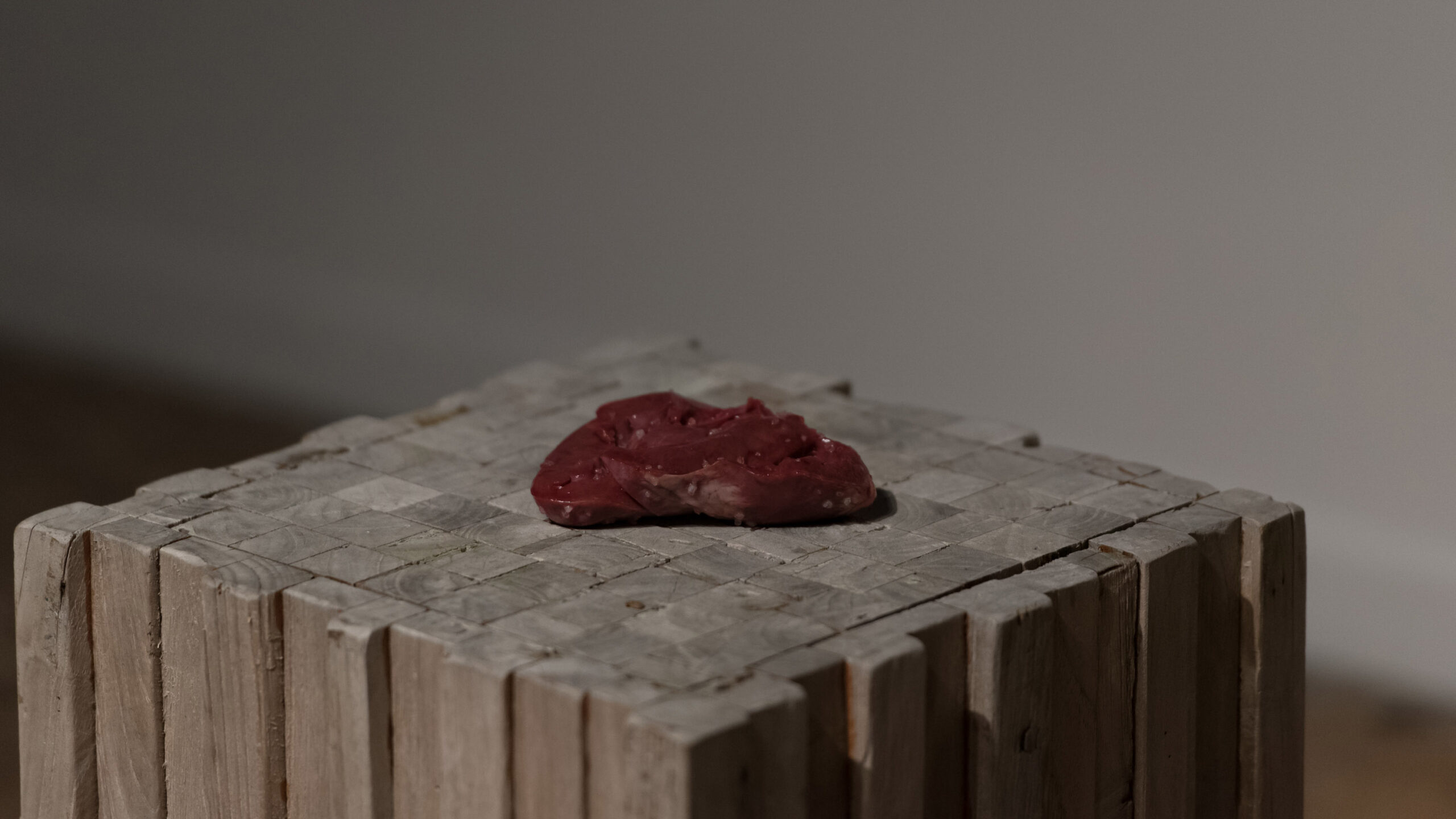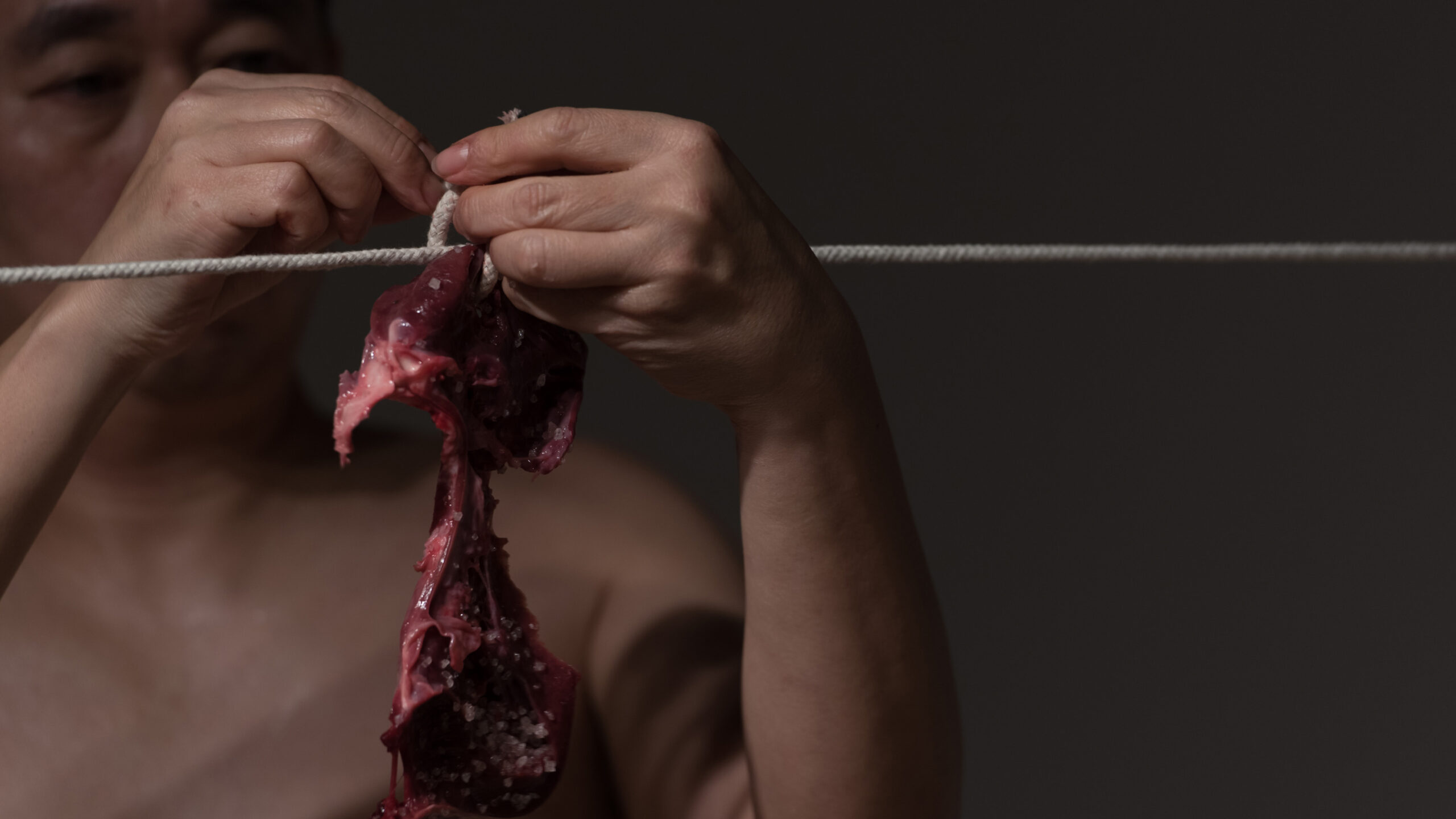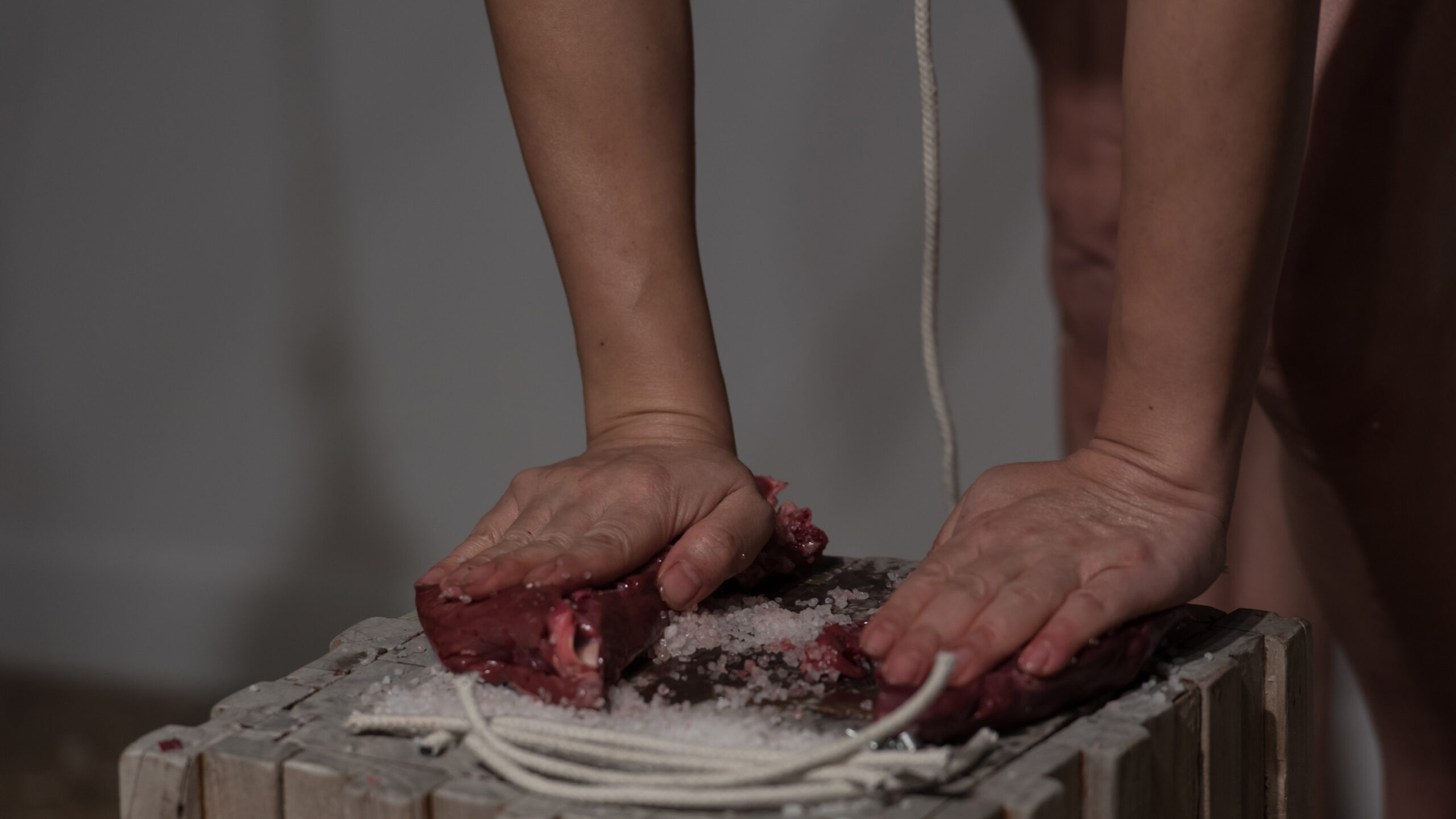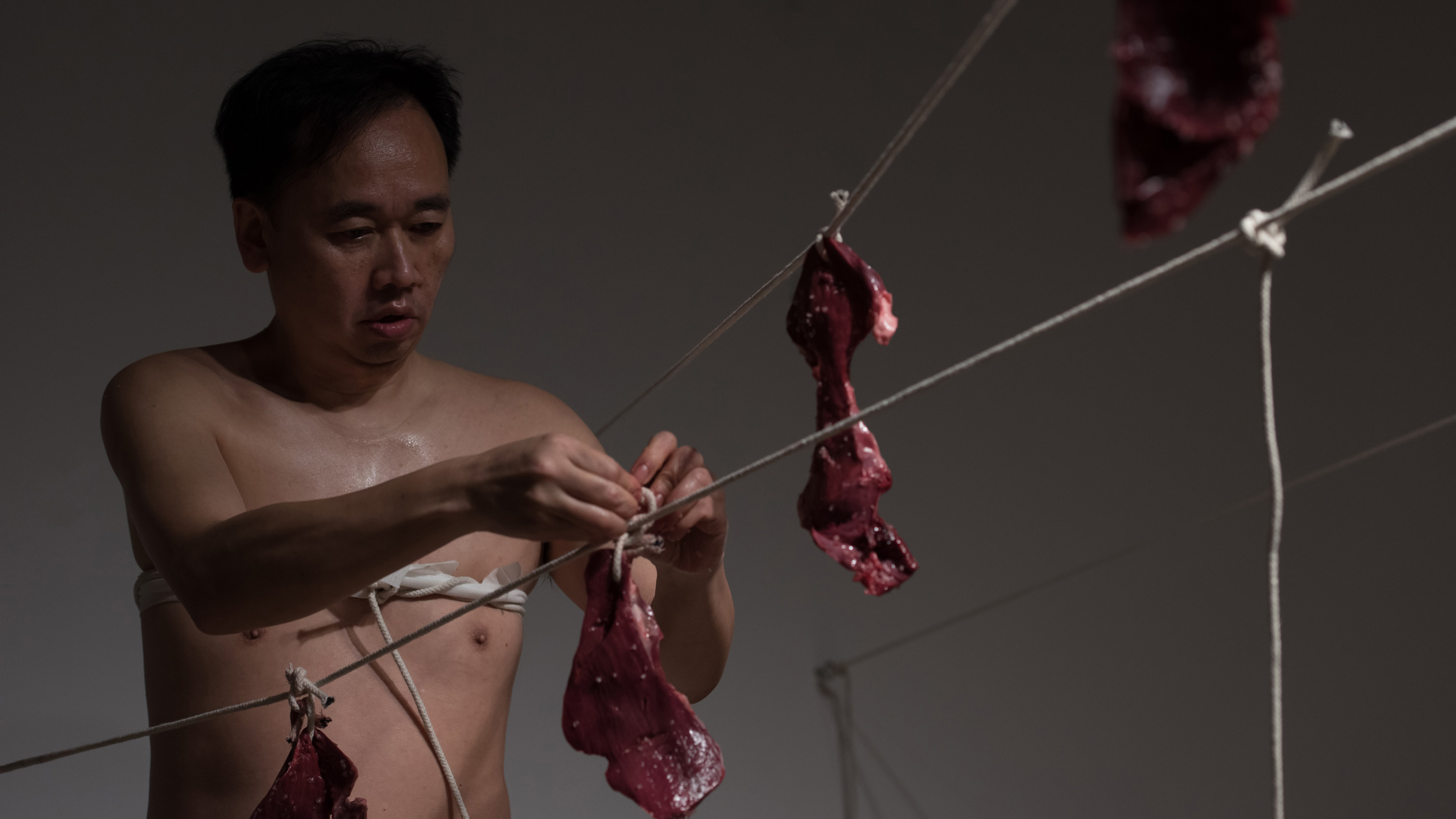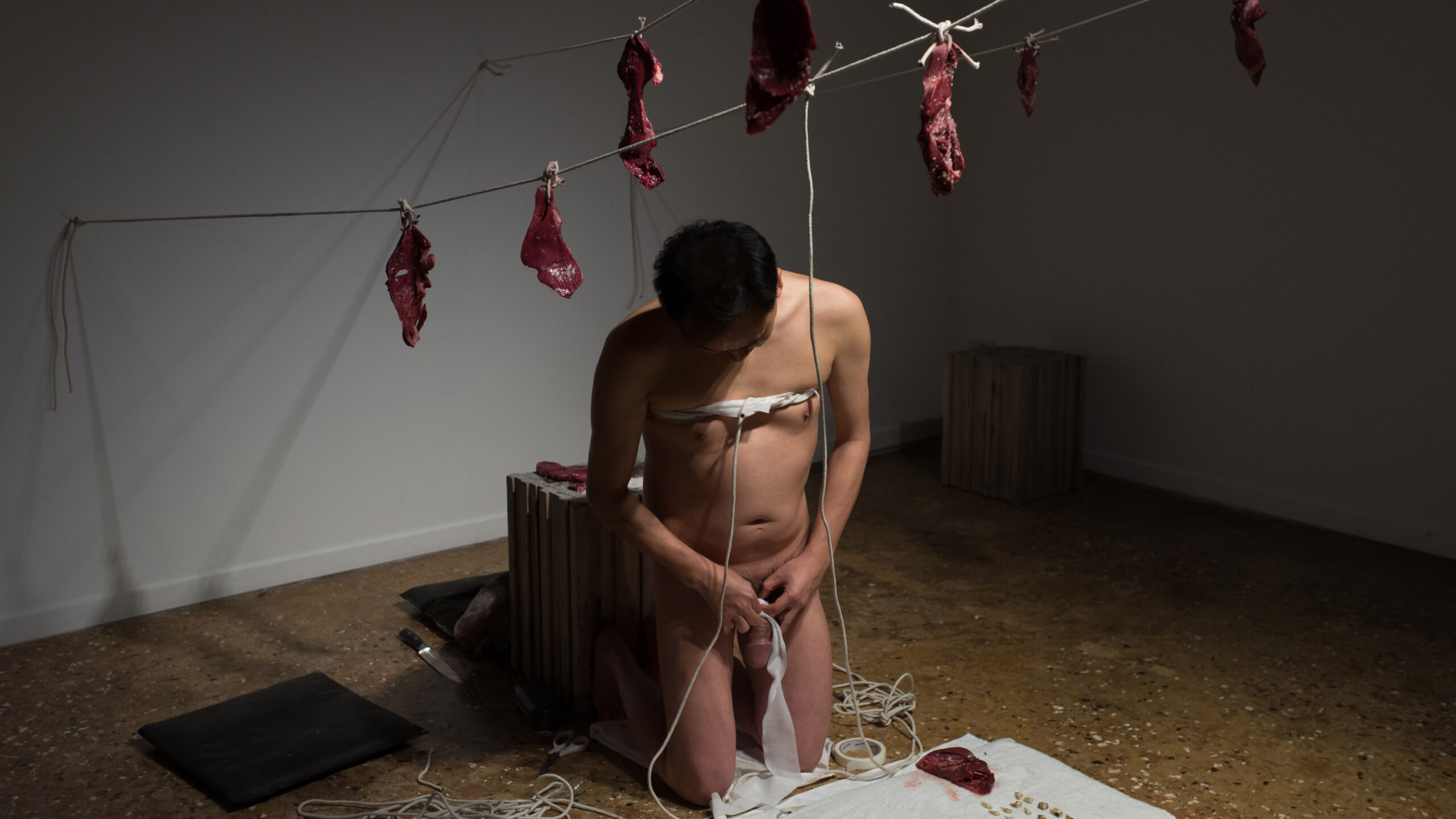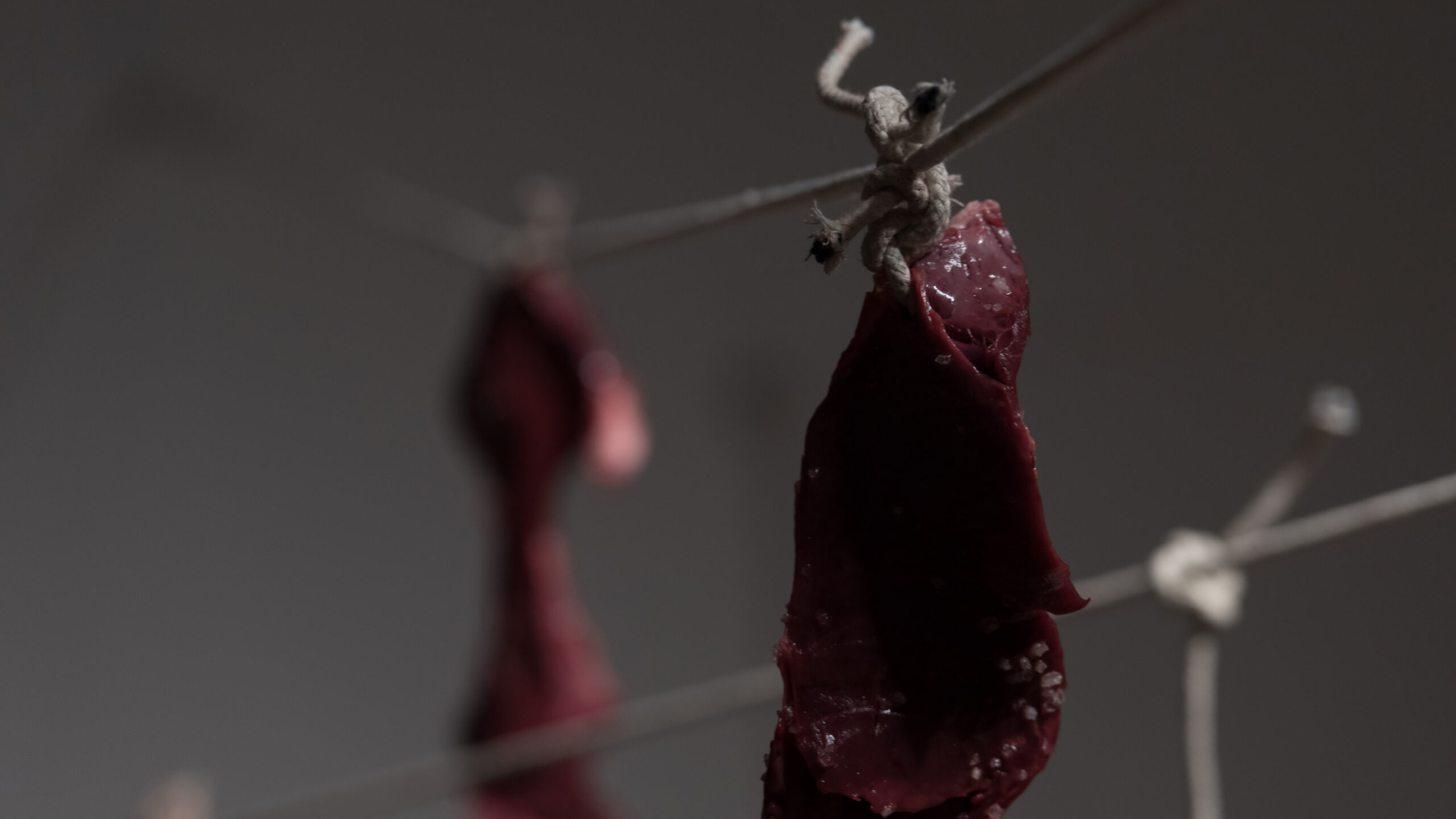Broken Heart (2020)4h
In this autobiographical performance, the protagonist, a deeply indoctrinated, mentally manipulated, and profoundly traumatized individual, embarks on a profound inner journey. As he delves into the recesses of his mind, he finds himself increasingly entangled in the intricate webs of his memories, their threads tightening around him like a suffocating embrace. This labyrinth of recollections, once a source of solace, morphs into a self-imposed prison, constricting his very essence.Yet, amid the darkness, a glimmer of hope emerges. With unwavering determination, he begins to visualize these enmeshed nets, peering into their intricate patterns with newfound clarity. Through this process of introspection, he gains invaluable insight into the convoluted maze of his own psyche. It is through this hard-won understanding that he discovers the key to mending his shattered heart and granting himself the freedom to breathe once more.As the protagonist courageously confronts his inner demons, he encounters a transformative revelation. He recognizes the power within himself to break free from the clutches of past traumas and ideological impositions. Through symbolic acts of opening his heart, he invites in a fresh influx of vitality and compassion. With each carefully unfolded heart, he purges them of the toxic poisons of fear and animosity, cultivating a profound sense of healing and forgiveness.Through this profound process, the protagonist begins to discern the true essence of his being. For the first time, he beholds his own reflection and embraces his identity as a man. The fragmented shards of his broken heart find solace, gradually fusing together into a resilient whole. And as he integrates these newly discovered hearts into the tapestry of his soul, he realizes the profound connection between his emotional core and his authentic self, transcending the limitations of gender and reclaiming his innate humanity.No longer bound by the tenuous links between his physical desires and the state of his heart, the protagonist experiences a profound liberation. The heart, now detoxified and rejuvenated, beats in harmony with the rhythm of his soul. With this newfound freedom and self-awareness, he embraces the birth of his authentic life, shedding the burdens of the past and embracing the infinite possibilities of the future.In a climactic moment of liberation, the protagonist releases the taut ropes that had bound him for so long, watching them fall away, relinquishing their hold on his spirit. As the weight of his past dissipates, his soul takes flight, unfurling majestic wings of liberation. Through this metamorphosis, he embraces the boundless potential that lies ahead, poised to face the future with unwavering courage and a newfound sense of freedom.In this awe-inspiring performance, the autobiographical narrative intertwines with a profound exploration of the human spirit. It is an ode to the indomitable strength of the human will, a testament to the transformative power of self-reflection, and the redemptive capacity of love and forgiveness. Through the protagonist's journey, we are reminded that, despite the intricacies of our own personal labyrinths, the possibility for growth, healing, and emancipation always exists, beckoning us to embark on our own profound odyssey of self-discovery.
Is identity a place we enter, or that of simply being?
We do not operate in a vacuum. Our history, environment, context and cultural background feed into the work we produce, when it is creative by nature. It is the same for our identities. They exist in our corporeality and mind structures. They consist of the same matter of our dreams, where everything coexists in the very instant of its disappearance.
But we should never forget that our lives are ruled by time’s inevitable, relentless passage. Always we have less of it than we had a moment ago. How do we move through time? How does time move through us? What is its effect on our actions and our bodies? What is its impact on the audience? We ask them to spend their time with us. What allows them to feel that it was worth surrendering a portion of their lives to the experience of our work?
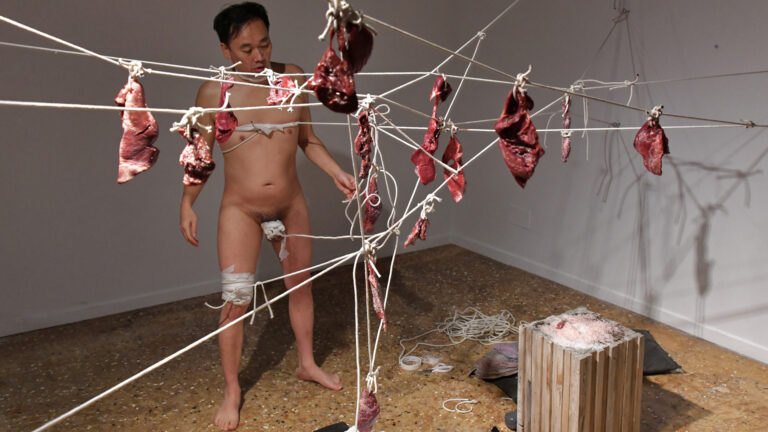
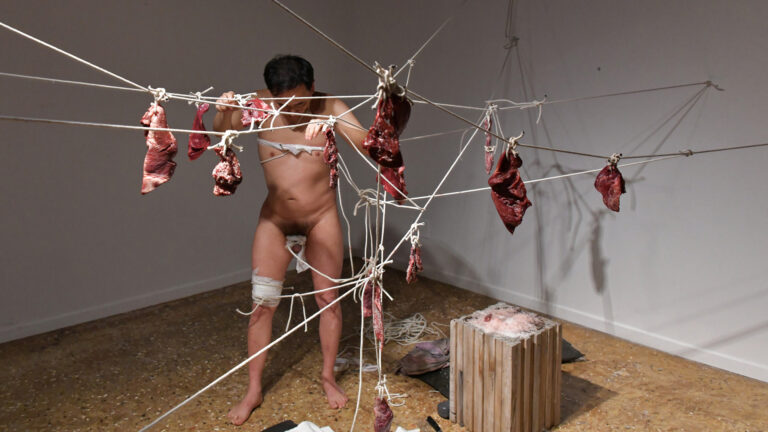
We can think of time as a tool, and our task is to more consciously use time in performance. The element of time becomes apparent through material and physical processes. But how often do we ignore or resist its impact? What happens when we actually allow those processes to unfold over the real time that they need? What occurs when we actively apply different time frames to our actions? How might we transform our own or other people’s sense of time?
broken heart
We perform our identities, differences and diversities every day through how we present ourselves publicly, and how we engage with each other is often based on our assumptions about others’ potential identities. At times we shift between presentations of ourselves that we are actively constructing, to other more unconscious manifestations of ourselves. However, a fluidity emerges as we move between diverse contexts and encounter a variety of people and communities. In this way, our changing expressions of our identities also recuperate dissent for equality, which is not only a crucial political issue but a profoundly philosophical dilemma.
And yet, as artists, it is crucial that we remain fully present, and as fully aware as we can possibly be of every nuance of who and what and how we are at this very moment in time. To the degree that we are conscious of who we are – what we are feeling, to what we are paying attention, what choices we are making, our fears, our hopes, our dreams – will allow us to make use of all these elements in the creation of our art.
